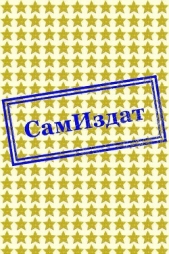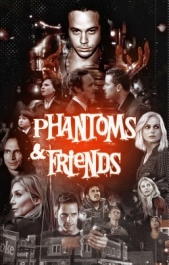Paper Towns

Paper Towns читать книгу онлайн
When Margo Roth Spiegelman beckons Quentin Jacobsen in the middle of the night — dressed like a ninja and plotting an ingenious campaign of revenge — he follows her. Margo's always planned extravagantly, and, until now, she's always planned solo. After a lifetime of loving Margo from afar, things are finally looking up for Q. . until day breaks and she has vanished. Always an enigma, Margo has now become a mystery. But there are clues. And they're for Q. Printz Medalist John Green returns with the trademark brilliant wit and heart-stopping emotional honesty that have inspired a new generation of readers.
Внимание! Книга может содержать контент только для совершеннолетних. Для несовершеннолетних чтение данного контента СТРОГО ЗАПРЕЩЕНО! Если в книге присутствует наличие пропаганды ЛГБТ и другого, запрещенного контента - просьба написать на почту [email protected] для удаления материала
I put the book down and lay on my side, staring out the window that had always been between us. It is not enough just to see her or hear her. To find Margo Roth Spiegelman, you must become Margo Roth Spiegelman.
And I had done many of the things she might have done: I had engineered a most unlikely prom coupling. I had quieted the hounds of caste warfare. I had come to feel comfortable inside the rat-infested haunted house where she did her best thinking. I had seen. I had listened. But I could not yet become the wounded person.
I limped through my physics and government finals the next day and then stayed up till 2 A.M. on Tuesday finishing my final reaction paper for English about Moby Dick. Ahab was a hero, I decided. I had no particular reason for having decided this — particularly given that I hadn’t read the book — but I decided it and reacted thusly.
The abbreviated exam week meant that Wednesday was the last day of school for us. And all day long, it was hard not to walk around thinking about the lastness of it all: The last time I stand in a circle outside the band room in the shade of this oak tree that has protected generations of band geeks. The last time I eat pizza in the cafeteria with Ben. The last time I sit in this school scrawling an essay with a cramped hand into a blue book. The last time I glance up at the clock. The last time I see Chuck Parson prowling the halls, his smile half a sneer. God. I was becoming nostalgic for Chuck Parson. Something sick was happening inside of me.
It must have been like this for Margo, too. With all the planning she’d done, she must have known she was leaving, and even she couldn’t have been totally immune to the feeling. She’d had good days here. And on the last day, the bad days become so difficult to recall, because one way or another, she had made a life here, just as I had. The town was paper, but the memories were not. All the things I’d done here, all the love and pity and compassion and violence and spite, kept welling up inside me. These whitewashed cinder-block walls. My white walls. Margo’s white walls. We’d been captive in them for so long, stuck in their belly like Jonah.
Throughout the day, I found myself thinking that maybe this feeling was why she’d planned everything so intricately and precisely: even if you want to leave, it is so hard. It took preparation, and maybe sitting in that minimall scrawling her plans was both intellectual and emotional practice — Margo’s way of imagining herself into her fate.
Ben and Radar both had a marathon band practice to make sure they would rock “Pomp and Circumstance” at graduation. Lacey offered me a ride, but I decided to clean out my locker, because I didn’t really want to come back here and again have to feel like my lungs were drowning in this perverse nostalgia.
My locker was an unadulterated crap hole — half trash can, half book storage. Her locker had been neatly stacked with textbooks when Lacey opened it, I remembered, as if she intended to come to school the next day. I pulled a garbage can over to the bank of lockers and opened mine up. I began by pulling off a picture of Radar and Ben and me goofing off. I put it inside my backpack and then started the disgusting process of picking through a year’s worth of accumulated filth — gum wrapped in scraps of notebook paper, pens out of ink, greasy napkins — and scraping it all into the garbage. All along, I kept thinking, I will never do this again, I will never be here again, this will never be my locker again, Radar and I will never write notes in calculus again, I will never see Margo across the hall again. This was the first time in my life that so many things would never happen again.
And finally it was too much. I could not talk myself down from the feeling, and the feeling became unbearable. I reached in deep to the recesses of my locker. I pushed everything — photographs and notes and books — into the trash can. I left the locker open and walked away. As I walked past the band room, I could hear through the walls the muffled sounds of “Pomp and Circumstance.” I kept walking. It was hot outside, but not as hot as usual. It was bearable. There are sidewalks most of the way home, I thought. So I kept walking.
And as paralyzing and upsetting as all the never agains were, the final leaving felt perfect. Pure. The most distilled possible form of liberation. Everything that mattered except one lousy picture was in the trash, but it felt so great. I started jogging, wanting to put even more distance between myself and school.
It is so hard to leave — until you leave. And then it is the easiest goddamned thing in the world.
As I ran, I felt myself for the first time becoming Margo. I knew: she is not in Orlando. She is not in Florida.Leaving feels too good, once you leave. If I’d been in a car, and not on foot, I might have kept going, too. She was gone and not coming back for graduation or anything else. I felt sure of that now.
I leave, and the leaving is so exhilarating I know I can never go back. But then what? Do I just keep leaving places, and leaving them, and leaving them, tramping a perpetual journey?
Ben and Radar drove past me a quarter mile from Jefferson Park, and Ben brought RHAPAW to a screeching halt right on Lakemont in spite of traffic everywhere, and I ran up to the car and got in. They wanted to play Resurrection at my house, but I had to tell them no, because I was closer than I’d ever been before.
29
All night Wednesday, and all day Thursday, I tried to use my new understanding of her to figure out some meaning to the clues I had — some relationship between the map and the travel books, or else some link between the Whitman and the map that would allow me to understand her travelogue. But increasingly I felt like maybe she had become too enthralled with the pleasure of leaving to construct a proper bread crumb trail. And if that were the case, the map she had never intended for us to see might be our best chance to find her. But no site on the map was adequately specific. Even the Catskill Park dot, which interested me because it was the only location not in or near a big city, was far too big and populous to find a single person. “Song of Myself” made references to places in New York City, but there were too many locations to track them all down. How do you pinpoint a spot on the map when the spot seems to be moving from metropolis to metropolis?
I was already up and paging through travel guides when my parents came into my room on Friday morning. They rarely both entered the room at the same time, and I felt a ripple of nausea — maybe they had bad news about Margo — before I remembered it was my graduation day.
“Ready, bud?”
“Yeah. I mean, it’s not that big of a deal, but it’ll be fun.”
“You only graduate from high school once,” Mom said.
“Yeah,” I said. They sat down on the bed across from me. I noticed them share a glance and giggle. “What?” I asked.
“Well, we want to give you your graduation present,” Mom said. “We’re really proud of you, Quentin. You’re the greatest accomplishment of our lives, and this is just such a great day for you, and we’re— You’re just a great young man.”
I smiled and looked down. And then my dad produced a very small gift wrapped in blue wrapping paper.
“No,” I said, snatching it from him.
“Go ahead and open it.”
“No way,” I said, staring at it. It was the size of a key. It was the weight of a key. When I shook the box, it rattled like a key.
“Just open it, sweetie,” my mom urged.
I tore off the wrapping paper. A KEY! I examined it closely. A Ford key! Neither of our cars was a Ford. “You got me a car?!”
“We did,” my dad said. “It’s not brand-new — but only two years old and just twenty thousand miles on it.” I jumped up and hugged both of them.























